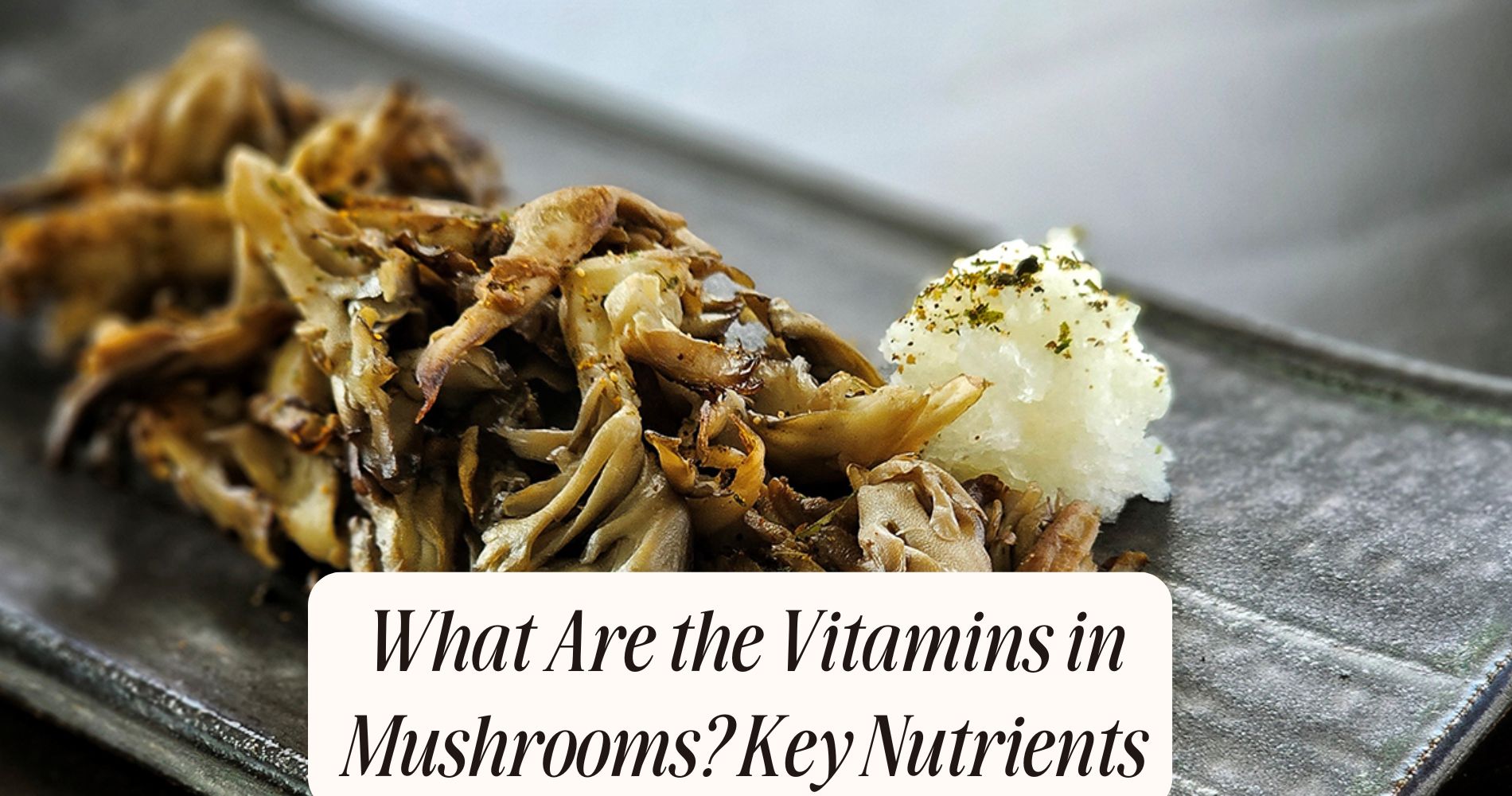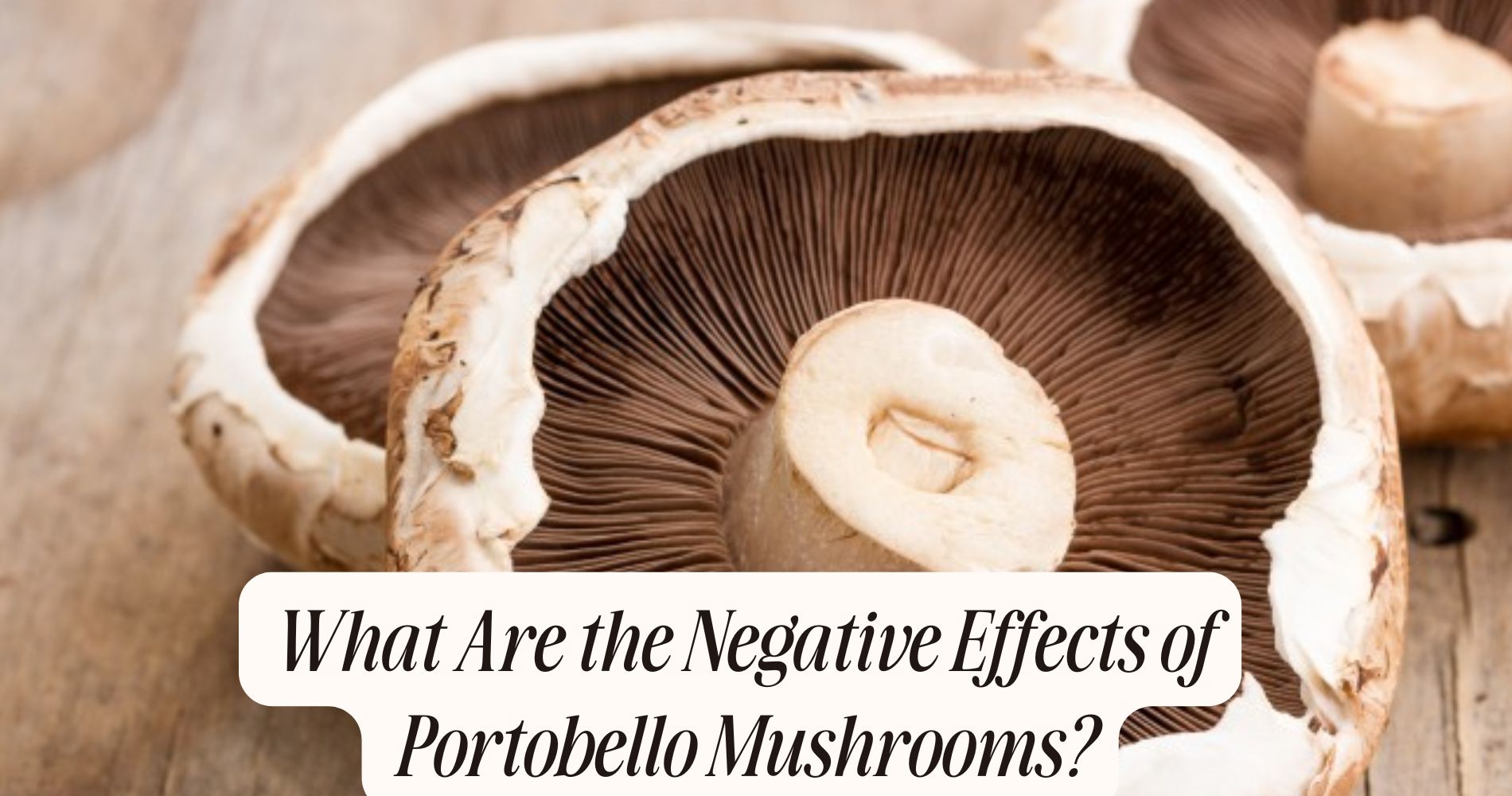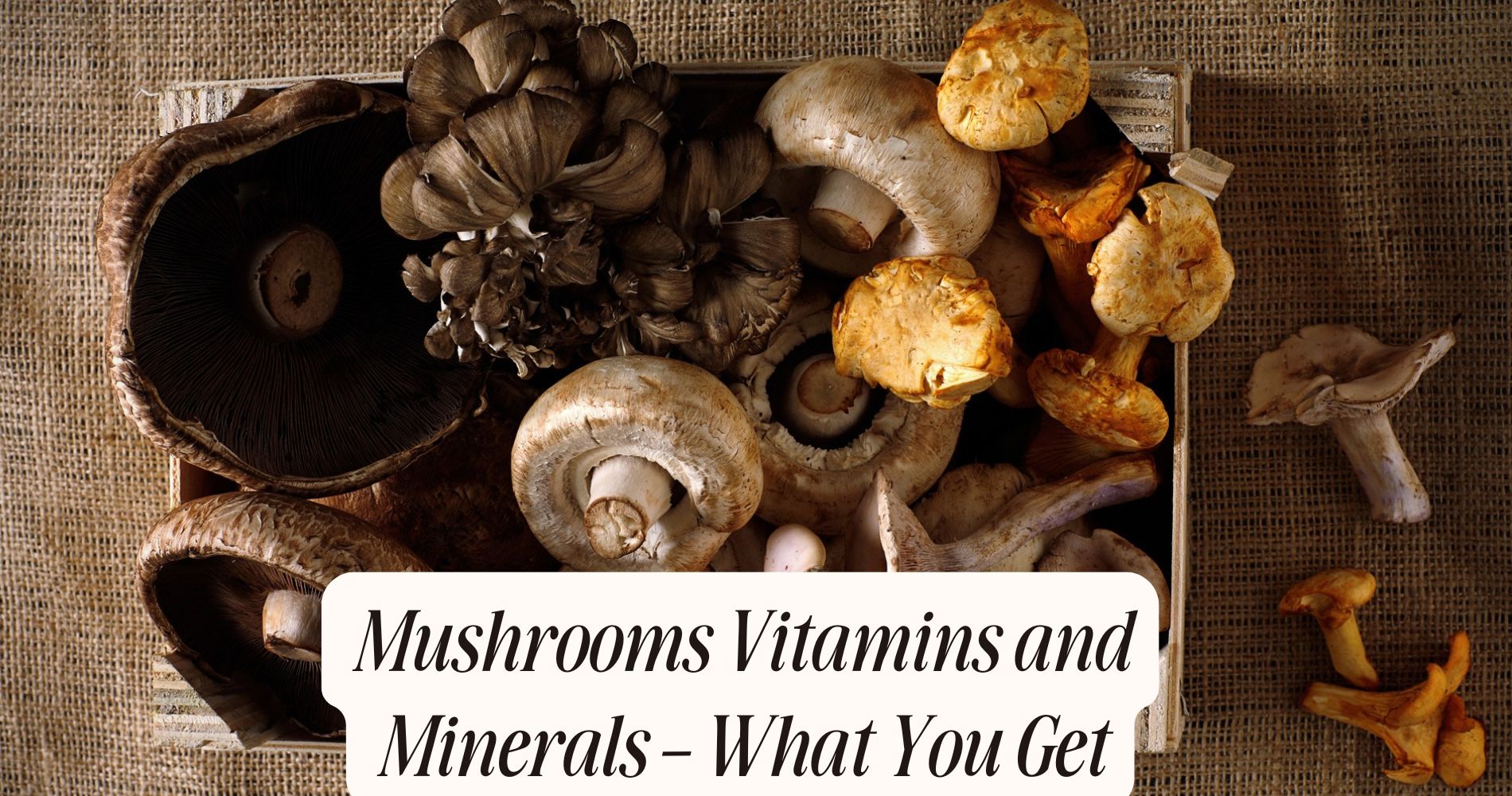
What Are the Vitamins in Mushrooms? Key Nutrients
What are the vitamins in mushrooms? When you eat mushrooms, you get a powerhouse of vitamins, including vitamin D for strong bones, several B vitamins (like riboflavin, niacin, and pantothenic acid) that boost your energy and support your brain, and antioxidants such as vitamin C and beta-carotene to protect your cells. They also provide vitamin K, which helps with blood clotting and bone health. If you want to make the most of their nutritional benefits, there’s a lot more you can discover.
Vitamin D: The Sunshine Nutrient
Although many foods contain little to no vitamin D, mushrooms stand out as a rare plant-based source of this essential nutrient. When you expose mushrooms to sunlight or UV light during mushroom cultivation, their vitamin D content increases markedly—sometimes rivaling fortified foods.
If you’re looking to boost your intake, choose varieties like maitake or UV-exposed button mushrooms. You can easily incorporate them into your meals, thanks to their culinary versatility. Sauté mushrooms for breakfast, toss them into salads, or add them to soups and pasta.

Evidence shows that vitamin D supports immune health and bone strength, making these dishes both delicious and nutritious. Remember, store mushrooms in sunlight for an hour to further enhance their vitamin D levels before cooking.
B Vitamins: Energy and Brain Health
Because mushrooms contain a wide range of B vitamins—including riboflavin (B2), niacin (B3), and pantothenic acid (B5)—they play a valuable role in supporting your energy metabolism and cognitive function.
This mushroom B vitamin diversity means you’re not just getting one nutrient but a spectrum that helps your body convert food into usable energy efficiently. These B vitamins also act as brain booster nutrients, contributing to neurotransmitter synthesis and overall brain health.
For example, niacin supports memory and mental clarity, while riboflavin aids in reducing oxidative stress in brain cells. By regularly adding mushrooms to your meals, you can help maintain steady energy levels throughout the day and support cognitive sharpness, making mushrooms a practical addition to a balanced diet.
Vitamin C: Immune Support in Mushrooms
Alongside their B vitamin content, mushrooms also offer a modest but meaningful source of vitamin C, a nutrient well-known for supporting immune function. While mushrooms don't provide as much vitamin C as citrus fruits, they still contribute to your daily intake, especially when included regularly in your meals.
Vitamin C works as an antioxidant, partnering with mushroom antioxidants like ergothioneine and selenium to help protect your cells from oxidative stress.

When you add mushrooms to your diet—whether in soups, stir-fries, or salads—you enhance both flavor and nutritional value. For maximum vitamin C retention, try to cook mushrooms lightly, as high heat can degrade this sensitive nutrient.
Including mushrooms in your culinary uses is a practical way to support your immune system with a variety of antioxidants.
Vitamin A Precursors: Beta-Carotene and Beyond
While mushrooms aren't typically recognized as major sources of vitamin A, they do contain vitamin A precursors such as beta-carotene and other carotenoids, especially in certain varieties like chanterelles.
You’ll notice that mushroom pigmentation often signals the presence of these compounds—the more vibrant the color, the higher the potential carotenoid content. Beta-carotene acts as an antioxidant, helping to neutralize free radicals and support your body’s cellular health.
Although most common mushrooms offer only modest amounts, including pigmented varieties in your diet can contribute to your overall intake of vitamin A precursors. For best results, try sautéing or lightly cooking mushrooms, as this can make carotenoids more bioavailable.
Vitamin K: Bone and Blood Health
Beyond their antioxidant pigments, mushrooms also supply vitamin K—a nutrient that plays a direct role in supporting bone strength and proper blood clotting. Your body relies on vitamin K to produce proteins essential for healthy bones and to regulate normal bleeding.
While mushrooms aren’t the highest source of vitamin K compared to leafy greens, their inclusion can still contribute to your daily intake, especially if you follow dietary restrictions that limit other food groups. If you engage in mushroom cultivation at home, you’ll find that fresh, properly grown varieties retain more of this essential vitamin.

For those with dietary concerns—like vegans or people on low-calorie diets—mushrooms offer a plant-based, low-fat source of vitamin K, helping you support skeletal and circulatory health naturally.
Niacin (Vitamin B3): Supporting Metabolism
Because your body relies on efficient energy conversion, getting enough niacin (vitamin B3) from your diet is essential. Mushrooms are an excellent source of niacin, supporting your metabolism by helping convert carbohydrates, fats, and proteins into energy.
Research shows that even common varieties like white button and portobello mushrooms provide significant amounts of this crucial nutrient. To maximize niacin intake, consider your cooking methods—grilling, roasting, or sautéing mushrooms preserves more of their B3 content compared to boiling, which can cause some loss in water.
Beyond nutrition, these methods also contribute to flavor enhancement, making mushrooms a tasty and practical addition to your meals. Include mushrooms regularly to help meet your body’s niacin needs and support metabolic health effectively.
Riboflavin (Vitamin B2): Cellular Function
Alongside niacin, mushrooms also supply a notable amount of riboflavin (vitamin B2), another key nutrient for your health. Riboflavin plays a crucial role in supporting cellular processes, particularly energy production within your cells. It acts as a coenzyme in metabolic reactions, helping convert the food you eat into usable energy.
This vitamin is also essential for maintaining healthy skin, eyes, and nervous system function. Importantly, riboflavin aids in nutrient absorption, allowing your body to better utilize other vitamins and minerals from your diet.
Since your body can’t store riboflavin for long periods, it’s important to include sources like mushrooms regularly. By doing so, you’ll help ensure your cells have the support they need for prime functioning and overall well-being.
Pantothenic Acid (Vitamin B5): Stress and Energy
While you mightn't think of mushrooms as a major nutrient source, they’re actually a good provider of pantothenic acid (vitamin B5), a vitamin essential for managing stress and supporting energy metabolism.
Your body relies on vitamin B5 to help break down carbohydrates, fats, and proteins, making it pivotal for efficient energy production. Additionally, pantothenic acid plays a direct role in synthesizing hormones that are involved in stress reduction, helping your body adapt to daily demands.

Including mushrooms in your meals can be a practical way to boost your B5 intake, supporting both your energy levels and your resilience to stress.
Try adding sliced mushrooms to stir-fries, omelets, or salads for a nutrient-rich boost that helps you meet your daily requirements.
Folate (Vitamin B9): Cell Growth and Repair
Although you might associate folate (vitamin B9) mainly with leafy greens, mushrooms are also a valuable source of this essential nutrient. Folate plays a vital role in cell regeneration and DNA synthesis, processes fundamental to your body’s growth and repair mechanisms.
If you’re aiming to support healthy cell division or want to boost tissue repair, getting enough folate is key—especially for pregnant individuals, as folate helps prevent neural tube defects in developing babies.
Get the Goodness Without the Guesswork: SUPER MUSHROOM GUMMIES
Now that you know what are the vitamins in mushrooms, why not enjoy them in a simpler, tastier form? Well Gummies' SUPER MUSHROOM GUMMIES combine the benefits of 10 powerful functional mushrooms—including those rich in B vitamins and other essential nutrients—into one convenient, chewable gummy. These vegan-friendly treats support brain health, boost energy, and strengthen your immune system, all with a delicious wild berry flavor. No cooking, no prep, no crash—just balanced, natural wellness in every bite. Make your daily nutrients easy and enjoyable with Well Gummies!
Frequently Asked Questions
How Should Mushrooms Be Cooked to Preserve Their Vitamin Content?
To maximize vitamin preservation, you should choose cooking methods like microwaving or grilling. These methods retain more nutrients compared to boiling or frying, which can cause vitamin loss. Always cook mushrooms briefly and avoid excess water for best results.
Are There Differences in Vitamin Content Between Wild and Cultivated Mushrooms?
You'll notice wild vs. cultivated mushrooms show vitamin variation—wild types often contain higher vitamin D due to natural sunlight exposure. If you want more nutrients, especially vitamin D, choose wild mushrooms when they're available and safe.
Do Dried Mushrooms Retain the Same Vitamins as Fresh Ones?
When you compare dried vs fresh mushrooms, you’ll find vitamin retention varies. Water-soluble vitamins, especially B vitamins, decrease during drying, while minerals stay stable. To maximize nutrition, use both forms in your cooking, depending on your needs.
Can People With Mushroom Allergies Still Benefit From Mushroom-Derived Vitamins?
If you have a mushroom allergy, you shouldn't consume mushroom-derived vitamins due to potential reactions. For allergy management, choose alternative supplements that provide similar nutrients, like B vitamins or vitamin D, from non-fungal sources for safe, effective support.
How Does Storage Affect the Vitamin Levels in Mushrooms?
When you store mushrooms improperly, storage effects can lead to vitamin loss, especially vitamin C. To boost vitamin preservation, keep mushrooms refrigerated and use them quickly. Research shows lower temperatures and less light help maintain their nutrient content.
Conclusion
When you add mushrooms to your meals, you’re getting a powerhouse of vitamins—especially D, various B vitamins, and essential nutrients like niacin, riboflavin, and folate. Research shows these support energy, immunity, brain health, and more. Make mushrooms a regular part of your diet by tossing them in salads, stir-fries, or omelets. With their unique blend of vitamins, mushrooms are an easy, practical way to boost your health every day. Don’t overlook their benefits!




